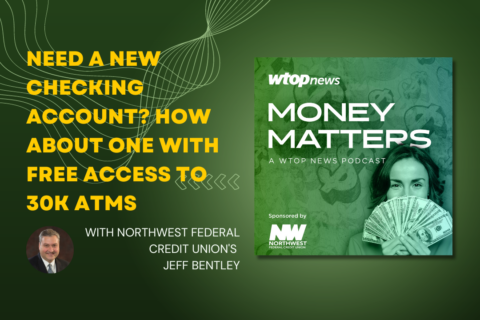This is the first article in our series, Money Matters.
Nearly everyone interacts with a financial institution in some way — a checking or savings account, a mortgage or other loan, maybe some investments. But a lot of people could still use a little help navigating the crowded field of financial accounts, products and services.
Making financial information accessible and relatable has become a passion of sorts for Jeff Bentley. Bentley, president and CEO of Northwest Federal Credit Union, started his career working for several large regional banks, which he credits with giving him a deep appreciation for the differences and similarities between banks and credit unions.
Bentley describes his years in banking primarily as being focused on profit.
“We had shareholders to please. And frankly, you were incented to keep your job to make money,” he said. “And so you found ways to enhance profits, whether it be prepayment penalties or fees — kind of ‘gotcha fees.’ ”
Building a community among members
But after more than half his career, Bentley made a career shift in 2008, when he took his first job at a credit union. And right away he became aware of a critical difference. “We’re focused on serving our members versus serving shareholders,” he said.
“We’re not for profit, but we’re not against it,” Bentley added. “You need money. You need resources to stay up to date with technology, and obviously to pay people and hire the right talent.”
But the emphasis is not exclusively on profit at a credit union. Today, Bentley tells his employees that their chief goal is to build trust with Northwest Federal members, not drive profit for the credit union.
“If we can get the members to trust us, then even if we don’t get the product that day and we have to send them somewhere else where there’s a better opportunity for them, that’s fine,” he said. “Because at that point, we’ve built that trust. They’re going to tell their friends, their family, and at some point along the way, there’s going to be a product that fits them.”
Credit unions aren’t the Wild West
Recent high-profile bank failures highlighted the importance of having accounts insured with the Federal Deposit Insurance Corp. to a maximum of $250,000. Credit unions have similar insurance through the National Credit Union Association, Bentley said. NCUA also provides coverage to a $250,000 maximum.
“You’ll find that across the board for the most part — between the FDIC and the NCUA — we’re regulated very similarly,” he said.
Northwest Federal is “super, super conservative because we’re not trying to maximize profits. We’re not out there chasing a bunch of yields and risk,” he said, calling the credit union rock solid financially because of how conservative it is about its deposits and investments.
“If you’re searching for a financial institution that will solve your financial problems or challenges, stop searching,” Bentley advised. “Go Northwest.”
To read more articles and listen to the full discussions in the WTOP Money Matters series, click here.
Northwest Federal Credit Union is insured by NCUA and an Equal Housing Lender. For more information regarding NCUA share insurance, visit mycreditunion.gov/share-insurance. Visit nwfcu.org for current rates and more information about products and services.







